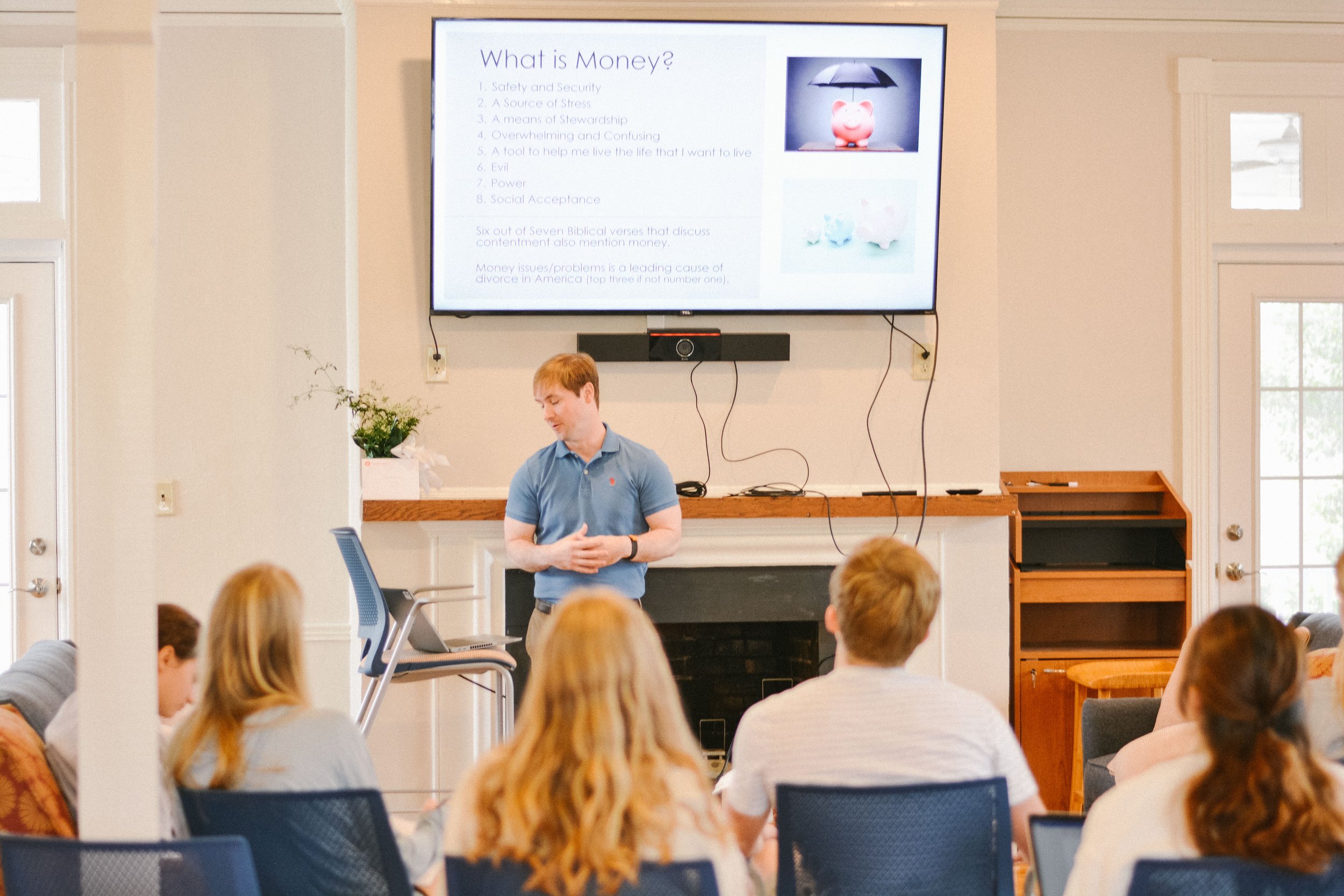Jonathan Wood Flash Finance Workshop
Back by popular demand! We’re offering another flash personal finance workshop with Jonathan Wood. In this 3 hour block, students learned about the basics of handling money, including:
the basics of assets vs. liabilities
how to determine your true hourly wage
the difficulties of purchasing a home and common mortgage mistakes
the pervasive and destructive mechanics of credit card debt
different types of investments
retirement plans
marriage and finances
the importance of starting to save monthly as early as possible
“Money is Time. How many hours of your life are you willing to trade for your next purchase?”
The secret to mastering our current financial landscape and getting out of the “rat race”? Wood says that instead of using your monthly income for only liabilities, invest in different assets that will make and generate income for you in the future. Eventually, your assets are able to generate income to pay for your monthly expenses without using your "paycheck" or hours of your life. When your investments and passive income streams are able to pay all of your monthly expenses then you have reached financial independence. Now, you are able to work because you want to, not because you have to.
“My most successful clients are those with multiple streams of income from various assets.”
The key to budgeting? Create an Anti-Budget: determine the amount of money you need to save to reach the goal of financial independence at your target age and consider everything else spendable. This eases the shame and guilt of spending while also ensuring financial stability since you have already "paid yourself first".
New to investing? Jonathan advises you to be honest with yourself about whether you can handle the ups and downs of a market as a long-term investor, or whether you’re looking for a short-term payoff. Research a few companies that you know well and evaluate whether the dividends will help you pay your bills.
Thinking about getting a credit card? DON’T BOTHER, says Jonathan. Credit card companies want you to max out your card or only pay the minimum mandatory payment every month and incur credit card debt, which Jonathan calls financial cancer, as you can spend decades paying astronomically more than what your original loan was in interest payments alone. If you have to use a credit card to boost your credit score, spend it only on gas once a month, or another regular payment that you pay off in full. The alternative? Always use cash. It has been scientifically proven that people spend 36-47% less when they use cash consistently instead of a credit or debit card.
Worried about student loans? While this is a very personal and often emotional topic, it may be better, says Jonathan, to save monthly for your future instead of rushing to pay off your student loans as fast as possible, as student loan interest rates are typically competitive (although some private lenders have higher rates then government loans) and you do not want to lose the time value of money by delaying your long-term investment plan to pay off a loan that has (typically) a ten year pay-off schedule.
Jonathan also stressed that everyone's situation is different and that while these ideas and strategies have worked well and led to positive results for many people over the years, they are not specific recommendations for any one individual.






